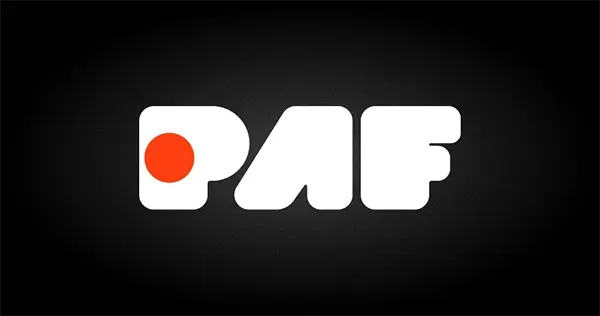
Mozzart – an Afro-European bookmaker: opportunities in Ukraine and international scale
Mozzart has developed into a cross-regional betting operator with strong roots in the Balkans and an expanding presence in African markets. By 2025, the company remains active in jurisdictions where local legislation permits online sports wagering, combining regional expertise with technological adaptation. In Ukraine, Mozzart maintains interest in the regulated market, focusing on compliance demands, risk evaluation and responsible betting standards.
Mozzart’s position across Europe and Africa
Mozzart originates from Serbia, where the company has operated since 2001 and gradually expanded across neighbouring Balkan markets such as Bosnia and Herzegovina, North Macedonia, Romania and Croatia. This regional base shaped the bookmaker’s operational approach, emphasising transparency, local payment methods and adherence to each country’s licensing requirements. By 2025, Mozzart continues to hold recognised approvals within the Balkans, allowing it to offer legal online sports betting and gaming services.
The brand’s expansion into African regions occurred steadily through markets such as Kenya, Nigeria and Zambia, where local licences enabled it to operate legally. African branches focus on mobile-first interfaces, simplified payments, and retail-plus-online integration, as these features are crucial for user expectations in these jurisdictions. As a result, Mozzart built a hybrid identity that brings together European regulatory discipline and African user experience.
This dual heritage allows the bookmaker to compete internationally by adapting its sports catalogue, promotions, and risk-management tools to different legislative environments. While African divisions often emphasise football and mobile convenience, European operations maintain a stronger focus on compliance frameworks, AML processes and responsible gambling obligations established by local regulators.
Regulatory landscape and operational standards
European legislation in 2025 requires strict adherence to KYC verification, deposit oversight and compliance reporting, all of which Mozzart applies across its EU-aligned markets. Regulatory bodies in Romania, Croatia and Serbia continue to monitor operator behaviour closely, ensuring that customer protection tools remain accessible and effective. Mozzart’s systems include spending controls, self-exclusion requests and identity authentication aligned with regional norms.
On the African side, regulatory approaches vary considerably, which forces the company to build flexible operational structures. Kenya and Nigeria apply licensing rules through national authorities responsible for approving operators and overseeing tax requirements. Despite differences in bureaucracy and digital maturity between African and European markets, Mozzart attempts to maintain a consistent standard of transparency in both regions.
This harmonised operational philosophy helps the bookmaker strengthen its reliability while entering new regions. By emphasising compliance, the company reduces reputational risk and demonstrates long-term commitment to licensed operation rather than short-term expansion. Such an approach positions Mozzart as a bookmaker with cross-regional stability rather than a market-specific provider.
Mozzart in Ukraine: opportunities and limitations
Ukraine legalised online betting in 2020, establishing the Commission for the Regulation of Gambling and Lotteries (KRAIL). By 2025, international operators interested in the Ukrainian market continue to monitor regulatory updates, taxation rules and licence availability. Mozzart has expressed intentions to participate in the Ukrainian regulated sector, reviewing both business potential and legislative constraints.
One of the central considerations for the company relates to taxation and operational cost requirements for foreign operators. Ukraine applies licence fees, corporate taxes and responsibility for maintaining user verification systems. For a bookmaker with strong experience in regulated European markets, these conditions are achievable, though they require careful risk assessment to ensure long-term operational stability.
Another factor involves regional security conditions, which influence infrastructure, marketing strategy and localisation efforts. Even under these circumstances, the Ukrainian betting audience remains active, with football, basketball, boxing and e-sports among the most followed categories. If Mozzart strengthens its presence in Ukraine, the operator will likely focus on these disciplines while incorporating responsible betting tools already used in other regions.
Sports coverage and promotional features
Mozzart’s sports catalogue remains broad in 2025, with European football leagues, international tournaments, basketball championships, tennis events and combat sports forming the core offering. The company also supports e-sports markets, especially due to their popularity in Eastern Europe. Odds formats adapt to local standards, maintaining clarity and accessibility for users.
Promotional tools vary according to regional laws. In the Balkans and Africa, Mozzart often applies boosted odds, accumulator bonuses and weekly specials, provided these features comply with licensing conditions. If introduced in Ukraine, such incentives would need to align with KRAIL’s promotional rules, which limit aggressive advertising and prioritise user protection.
In addition to sports wagering, the operator may offer supplementary features depending on jurisdiction, such as live-betting tools, match statistics, or mobile-optimised navigation. These elements aim to support informed decision-making while keeping the focus on responsible play practices rather than excessive engagement.

Risk considerations and user protection
All internationally operating bookmakers face regulatory, financial and reputational risks. For Mozzart, cross-border activities require constant monitoring of legislative changes in both European and African countries. Compliance failures could lead to fines or licence suspension, making risk-management strategies essential for maintaining operational stability.
User protection remains a priority across all regulated markets. By 2025, Mozzart integrates verification tools, deposit limits, activity monitoring and self-exclusion options to ensure that betting does not exceed safe behavioural boundaries. The company follows data-security standards that match regional obligations, reinforcing trust among users.
In Ukraine, the key risks involve regulatory unpredictability and evolving tax rules, which can influence investment decisions. However, Ukraine’s interest in maintaining a structured betting framework suggests long-term potential for operators who comply with licensing and user-safety requirements. This positions Mozzart as a bookmaker capable of entering the market with a stable, regulation-oriented approach.
International scale and prospects for 2025
By maintaining operations in both European and African regions, Mozzart positions itself as a bookmaker with a rare cross-continental model. This allows the company to combine European discipline with African market adaptability, forming a balanced international structure. Such diversification reduces dependency on a single region and supports long-term sustainability.
The company’s future prospects include deeper digital integration, improved mobile experience and adaptation to new regulatory standards. In regions where legislation remains in transition, Mozzart will likely emphasise gradual growth supported by compliance. In markets such as Kenya or Romania, where the operator is already established, further development may focus on platform efficiency and local payment solutions.
For Ukraine, the outlook depends on regulatory stability and licence availability. If conditions remain favourable, Mozzart could become one of the international bookmakers expanding into the Ukrainian regulated sector. The brand’s European experience and African operational flexibility provide an advantage for adapting to Ukraine’s evolving betting landscape.




